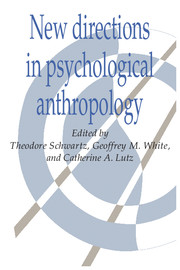Book contents
- Frontmatter
- Contents
- List of contributors
- Introduction
- I Cognition and social selves
- II Learning to be human
- III The body's person
- IV Psychiatry and its contexts
- V Psychoanalytic approaches
- VI Disciplinary perspectives
- 15 Polarity and plurality: Franz Boas as psychological anthropologist
- 16 Anthropology and psychology: an unrequited relationship
- Index
15 - Polarity and plurality: Franz Boas as psychological anthropologist
Published online by Cambridge University Press: 05 June 2012
- Frontmatter
- Contents
- List of contributors
- Introduction
- I Cognition and social selves
- II Learning to be human
- III The body's person
- IV Psychiatry and its contexts
- V Psychoanalytic approaches
- VI Disciplinary perspectives
- 15 Polarity and plurality: Franz Boas as psychological anthropologist
- 16 Anthropology and psychology: an unrequited relationship
- Index
Summary
Although the matter of his original disciplinary identity is somewhat problematic, it could be argued that before Franz Boas became an anthropologist, he was a psychologist: six of his first ten publications were on topics in Fechnerian psychophysics (Andrews 1943: 67). His first regular academic appointment, at Clark university between 1889 and 1892, was in a Department of Psychology, and when he came to Columbia in 1896 as a lecturer in physical anthropology, it was initially in another such department (Lesser 1968). Although he published few explicitly psychological articles after those first six, what is arguably his single most important piece, “On Alternating Sounds” (1889), as well as most of his major generalizing anthropological statements, may be regarded as essays in comparative psychology. And when he returned to Clark for that university's twentieth anniversary celebration in 1909 – at which Sigmund Freud, in a series of morning lectures, gave the first authoritative account of “The Origin and Development of Psychoanalysis” to American audiences (Hale 1971, pp. 3–5) – Boas spoke on “Psychological Problems in Anthropology.” Throughout this period, there is evidence that he maintained contact with a number of different strands of psychological thought – displaying some degree of familiarity with the work of Herbart, Fechner, Wundt, Lazarus and Steinthal, Dilthey, Tarde, James, Baldwin, and Freud.
Yet if I may judge from the sampling on my own shelves, Franz Boas has been given rather short shrift in histories of “The Making of Psychological Anthropology.”
- Type
- Chapter
- Information
- New Directions in Psychological Anthropology , pp. 311 - 323Publisher: Cambridge University PressPrint publication year: 1993



